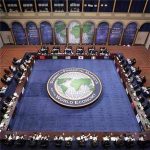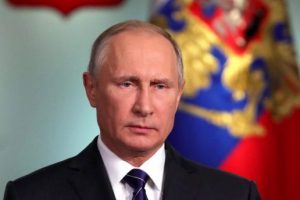 The UNO believes that 90 million people can be lifted out of poverty by empowering “small farmers”, today scratching a living as subsistence farmers, to become “smallholder farmers” feeding not only themselves but also the world, increasing production, decreasing hunger and prices.
The UNO believes that 90 million people can be lifted out of poverty by empowering “small farmers”, today scratching a living as subsistence farmers, to become “smallholder farmers” feeding not only themselves but also the world, increasing production, decreasing hunger and prices.
Kanayo Nwanze, President of the International Fund for Agricultural Development (IFAD*), stated in his address to the Governing Council of this UN agency that by 2015, ninety million people can be lifted out of poverty if the world community helps small farmers to achieve their potential, eliminating hunger and promoting development.
“The time has come for smallholders to play their rightful role in contributing to economic growth and food security,” he stated, convinced that “Smallholder farmers can feed themselves and they can help feed the world.” His statement comes after the UNO has announced that the world’s population, now standing at seven billion, is set to rise to nine billion by the year 2050.
Nice words, but…
Putting words into action, Mr. Nwanze spells out how his plan can be implemented:
“Our job is to make it possible for small farmers, and everyone living in rural areas, to be part of this growth industry by realising their potential. As more people migrate to the cities, those who stay behind will become even more important, because agriculture is primarily a rural activity.
“When these farmers are recognized as small entrepreneurs, when they have access to better resources and incentives, and when they have access to markets and an enabling environment, they can transform their communities, their own lives, and indeed the world.”
He highlights three words: perseverance, patience and determination in his plan which would empower farmers by creating climate-smart policies to optimise production, teaching farmers how to improve their produce and possibly consider a change of crops, while at the same time following climate-friendly policies. IFAD aims to implement policy through public-private partnerships in rural development programmes which through sustainable productivity, reduce poverty.
The programme of the Fund is to address the question of women’s empowerment and will request that community leaders prepare the youth of today to be the farmers of tomorrow – so often they leave rural areas, moving to the city to look for work and what they perceive as a better living – how many actually find it?
That is, until the food brokers move in, buy up the produce for the next three to five years and then control the prices on the markets.
*IFAD, based in Rome, is both a UN agency and an international financial institution, and since 1978 it has invested about $13.7 billion in grants and low-interest loans to developing countries to help the rural poor grow and sell more food, increase their incomes and escape poverty.
Timothy Bancroft-Hinchey
Pravda.Ru












Adauga comentariu